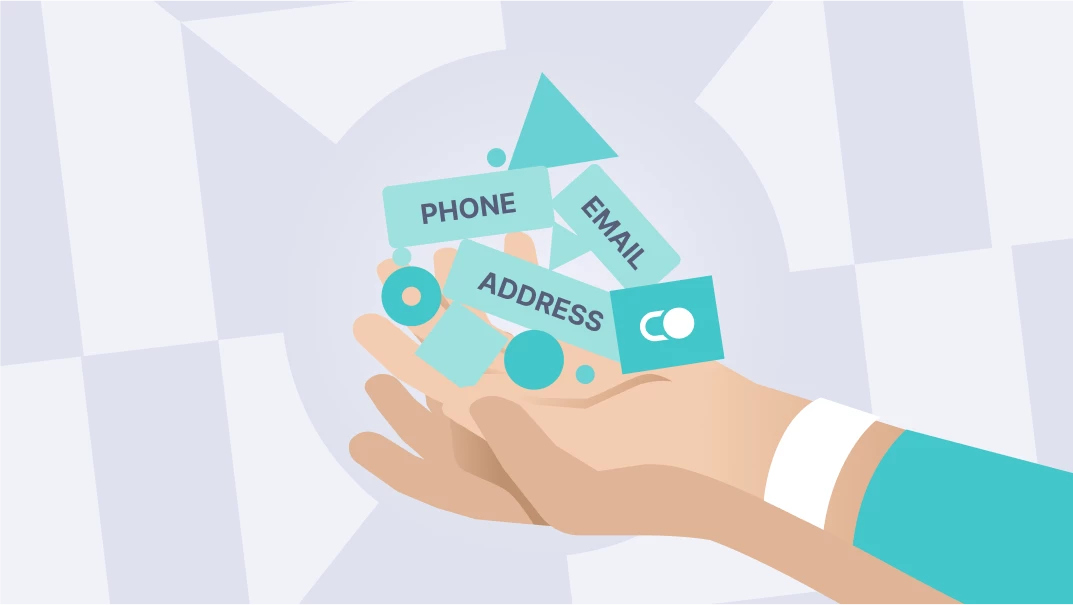Aside from just wanting privacy, you have plenty of other reasons to remove your personal information from the internet with the amount of data breached on a steady incline since 2005. Not to mention targeted scams and identity theft.
It’s easier said than done, though. So many of the online tools and services we use these days, search engines, apps, and e-commerce sites, all heavily rely on data collection. Most of us don’t even bat an eye each time with sign away our data rights to tracking cookies.
But while it’s impossible to completely remove all traces of your data online, you can remove a significant chunk of your personal information from the web. In this article, we'll outline the steps you can take to minimize your digital footprint and protect your privacy online.
What is Personal Information?

According to the California Consumer Privacy Act (CCPA):
“Personal information” means information that identifies, relates to, describes, is reasonably capable of being associated with, or could reasonably be linked, directly or indirectly, with a particular consumer or household.
This can include data such as:
- Social Security number
- Date of birth
- Sex
- Race
- Marital status
- Property records
- Criminal/court records
- Financial records
- Medical records
How can you remove your Personal Information from the Web?
In the wrong hands, personal information can be used to lure you into sophisticated scams, steal your identity, and even stalk and harass you and your family. Removing your data from the internet and therefore limiting the chances of cybercriminals gaining access to it is the best way to protect yourself from these dangers.
Here are the steps you can take to do this:
- Browse the web in private. Keep your activity under wraps using the private browsing option on your browser of choice and, more importantly, a good VPN.
- Delete any online accounts you don’t use. Even if you're not using an online account, it may still be processing your information. Delete your old email accounts, social media profiles, blogs, and e-commerce accounts.
- Uninstall unused apps. Apps share a lot of your personal information with third parties and even share permissions such as recording audio.
- Optimize the privacy settings on your devices and the accounts you keep. Pay particular attention to location sharing, third-party sharing, activity tracking, and personalized add settings.
- Remove your data from Google. You can do this through the activity controls page. You can also remove your information from the search results by contacting website owners or Google directly.
- Opt out from data broker sites and people search sites. Data brokers and people search sites collect and sell personal information. You can opt out of these sites using opt-out guides or data removal services like Incogni.
How does your Personal Information Appear Online?
There are three main ways your personal information ends up online:
- Your online activity. This includes your social media profiles, online shopping accounts, loyalty programs, and blogs. This is all information that you knowingly put online. A lot of that data is collected and shared with third parties and is vulnerable to cyberattacks.
- Companies that collect your data. Any apps, search engines, and websites you visit may (and likely do) collect your personal information through tracking cookies and convoluted privacy policies.
- Government records. The government keeps records such as birth and death certificates, marriage certificates, licenses, and court records. Many of which are public.
Keeping your Personal information off the internet with Incogni

Once you remove the bulk of your personal information from the internet, your next step is to keep any remnants of old records as well as new data from circulating the web. Data brokers and people search sites scrape the internet for your personal information and likely have copies of any data you removed.
Use an automated personal information removal service like Incogni to clean up these records and keep new ones from popping up to replace them. With the yearly subscription Incogni offers at a 50% discount ($6.49/mo), they will automatically identify which data brokers have your personal information, send removal requests, appeal any rejected requests, and conduct repeated removals to keep your data off the market.





